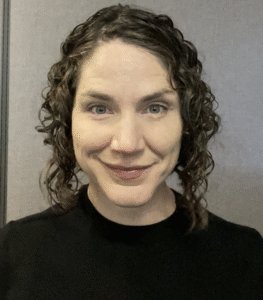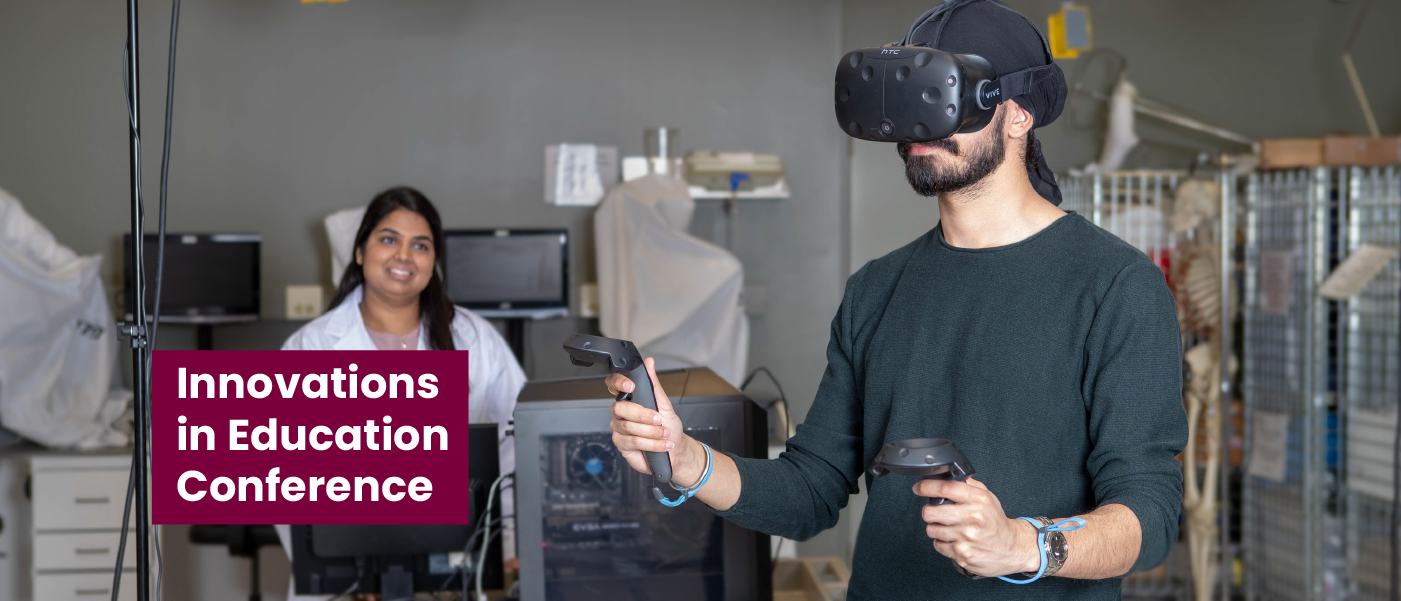Overview
Evolution or Revolution: Teaching on the Edge
Join us for the 2025 Innovations in Education Conference, a virtual event hosted by McMaster University, taking place on December 9th and 10th, 2025.
Educators in 2025 are navigating rapidly advancing technologies, shifting political landscapes, evolving student needs, and much more. How do educators understand themselves within their changing professional identities? What transformations in teaching and learning are being embraced—and which are being resisted? How can institutions support educators as people and as professionals in a changing landscape?
The teaching and learning experience has never been more complex. This conference aims to foster dialogue, create space to explore the tensions and opportunities, and chart a path forward as we evolve—and aspire to revolutionize—teaching together.
This fully virtual, two-day event aims to facilitate the exchange of ideas, experiences, and best practices among educators, researchers, administrators, students and other key persons. By utilizing a variety of formats including short papers, poster presentations, panel discussions, and interactive workshops, we will critically explore key considerations for implementing these strategies. This includes addressing diverse student needs, managing technology integration, adopting new policies, fostering student engagement, and promoting equity and accessibility in education.
Conference Dates and Fees
Tuesday, December 9 & Wednesday, December 10
Location: Zoom Events Platform (online)
Programming: Both days will be fully online and include a variety of presentations.
Ticket Cost:
- $50 for general admission (access to both days)
- Free for students with a valid student ID (access to both days)
Register through Zoom Events
Registration is now open! Complete your registration through Zoom Events.
Additional Helpful Resources
Questions?
Connect with us via email: Emily Hynes, hynese@mcmaster.ca
Get Familiar with our Event Platform
Introduction to Zoom Events
During the conference, Zoom Events will be the hub of activities. The virtual lobby will open one week in advance of the conference and attendees can join the lobby by clicking the event link hub and clicking “Join Lobby.” From here you can create a profile for yourself and start building an itinerary of events you want to attend.
Sessions
- View the entire schedule of activities by clicking the “Sessions” tab.
Speakers
- Learn more about all of the speakers for the 2025 Innovations in Education Conference
Itinerary
- Create your own itinerary by opening the “Sessions” tab.
- Use the “Filter” function to sort sessions.
- Add sessions to your itinerary using the bookmark sessions button.
- Once you have built your itinerary, you can view your whole schedule by selecting the “Itinerary” tab in the navigation bar at the top of your screen.
Posters
Poster presentations will be available to browse via the “Posters” tab once the virtual lobby is open.
Exhibitors
- Learn more about our conference sponsors.
Important Notes
- Attendees must register with their own Zoom account and use the same account to join the event.
- We recommend opening Zoom prior to the conference and completing any recommended software upgrades or updates to prevent issues accessing the conference.
- If you’re able, the easiest way to connect is through single sign on (SSO) – click the SSO key icon and then enter your company domain – likely university.zoom.us – the system will connect you.
- For more information:
- Getting started as a Zoom Events Attendee
- If you encounter any technical issues during the conference, please contact
- Emily Hynes (hynese@mcmaster.ca) or mi@mcmaster.ca (this email will be actively monitored throughout the conference).
We appreciate your support in testing your conference access before the start of the conference. We have performed extensive testing on the platform and expect a smooth conference program; however, technical difficulties are always a risk. We ask for your patience and understanding as we work quickly to provide assistance to both presenters and attendees who may experience difficulties during the event.
Meet our Keynote Speaker
Keynote Session
Beyond Hope: Preserving, Reimagining and Building for Teaching and Learning in the Age of AI
There is no shortage of problems in Canadian post-secondary teaching and learning: underfunding resulting in choices to expand class sizes and reduce teaching support; incentive structures that reward research over teaching; assessment models attuned to scale and output; uneven support services for students at a time when multiple and intersecting stressors impact learning conditions; and educators asked – again – to adapt, to pivot, to shift, to change to meet the moment.
The moment – 2025 – is one that likewise offers much in the way of challenges for post-secondary education in Canada and for the world. In this talk we will take one of those challenges – the investment in generative and agentic artificial intelligence “AI” – and ask how the specific challenges of AI for teaching and learning exacerbate the structural breakages already in place that jeopardize teaching and learning and what we might do next.
We will begin by considering what problems AI has amplified for teaching and learning, and both how it is currently making these problems worse (and offering windows of possibility). Tempting as it is to shift from the portrait of concern to that of hope, the talk shifts instead to considering what about teaching in the learning university, in particular, might warrant effort to preserve, what we might need to reimagine, and what might need to be built entirely anew.

Keynote Speaker
Erin Aspenlieder
Director, Office of Teaching and Learning
University of Guelph
Erin is Director of the Office of Teaching & Learning at the University of Guelph where she leads strategy and services that advance teaching excellence and inclusive and learner-centred pedagogy. She previously served as Associate Vice-Provost, Academic Quality & Teaching Innovation at Sheridan College and as Special Advisor to the Provost on Generative AI at McMaster University.
A convener and builder, Erin has launched campus-wide AI literacy communities of practice, developed governance and service pilots for generative AI, and scaled evidence-informed teaching initiatives. She is co-editor with Sara Fulmer of the “AI Playbook for Teaching & Learning Leaders,” and frequently collaborates with Canadian partners to translate research into practical guidance for instructors and academic leaders. Her current work focuses on assessment in the age of autonomous AI.
With a PhD in English and Cultural Studies from McMaster, Erin reads for fun and believes that stories guide our understanding of our present and shape our possible futures.
Call for Proposals
The Call for Proposals has now closed. Thank you for your interest in the 2025 Innovations in Education Conference. Please navigate to the Registration tab to register for the conference.


